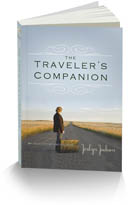Today I read all of Paslm 26 when I read chapter 13, God’s Variety.
Psalm 26
Of David.
1 Vindicate me, LORD,
for I have led a blameless life;
I have trusted in the LORD
and have not faltered.
2 Test me, LORD, and try me,
examine my heart and my mind;
3 for I have always been mindful of your unfailing love
and have lived in reliance on your faithfulness.
Dear Bible Bob,
In Genesis 9:25 God cursed Canaan. Ham had several children so why was the curse on Canaan only?
(signed) Perplexed
Dear Perplexed,
There are so many issues involved with this question, it is hard to know where to begin! First, we should emphasize that this was a prophecy by Noah of how God would deal with the descendents of the three sons. We should not think that Noah had supernatural power to call down curses or blessing. Bible Bob doesn’t believe, as in commonly taught, that Noah was using alcohol for the first time. If that were the case, he could hardly be at fault for his drunken stupor as the passage suggests.
Noah had brought agricultural savvy with him from before the flood. Cain, was the first farmer after creation and Noah was the first after the flood. The time frame is not given in Genesis 9, but it looks to me like Noah’s first official act out of the ark was to build an altar and worship the God of Salvation. His next recorded act was to get drunk and dishonor God. Both of those qualities were in Adam, and were carefully illustrated in Noah, so we would not be shocked when they appear in others and ourselves.
God makes it clear that two of Noah’s three sons chose the higher path, but Ham gravitated to the baser. Ham didn’t “see” his father’s nakedness but he”looked” at his father’s nakedness! One commentator says the Hebrew suggests “looked with delight” which would introduce the possibility of a homosexual bent in Ham. Ham then told his brothers, not in sorrow or pity, but gleefully in a “scornful, deriding manner” (Matthew Henry). Ham might have been drunk before this, and Noah might have scolded him as a father would. In that case, Ham would be delighted to see his righteous, but aged dad stumble. However innocently Noah might have sinned, Ham’s sin was deliberate and brazen.
Now why was Canaan singled out for the “curse ?” Why not Cush, Mizraim, or Put (yes, Put is his name. What greater curse could be put on Put than the name Put?). Strangely, 9:18 calls Ham the father of Canaan, the youngest son. Unless there are exceptions I have not seen, the common Bible formula uses the oldest son, not the youngest. I believe verse 18 refers to Ham as the father of Canaan the people, not the individual, i.e. the Canaanites.
Abraham was “the father of many nations.” Ham was the progenitor of the Canaanites or father of Canaan. The prophecy then was that the Canaaites would be slaves to the Hebrews. This was fulfilled several times in History (see Joshua 9:23 and Judges 1:28). The Canaanites were the epitome of evil, drunkenness, and debauchery. That lifestyle dooms one to slavery of many kinds.
Here is my point: The same tendencies in Noah, whom the New Testament called “righteous in his generation” were intensified in his sons. The inclination to righteousness was evidenced in Shem and Japheth. The bent toward the unclean was intensified in Ham, then even moreso in Canaan. Since Genesis repeats that Ham is the father of Canaan, it seems to point to a kinship of mind between the two. We have all seen this in families, haven’t we? Boy, he is his father’s son! The fruit doesn’t fall far from the tree, etc.
Let’s review. In this opinion, the curse is not a curse, but a prophecy. Canaan is not the person, but the nation (like Israel). The Canaanite lifestyle was easy to predict. Yes, I know there is much more involved here, but God didn’t devote much of the Bible to explaining it.
No Baptist could leave this topic without a comment about alcohol and intoxication. Walvoord, of Dallas Seminary, sums it up best: “though wine is said to cheer the heart (Judges 9:13 and Psalm 104:15) and alleviate the pain (Proverbs 31:6) it is also clear that it has disturbing effects. Noah lay drunk and naked in his tent. Intoxication and sexual looseness are hallmarks of pagans, and both are traced back to this even in Noah’s life. Man had not changed at all; with the opportunity to start a ‘new creation,’ Noah acted like a pagan (cf. Genesis 6:5 and 8:21).” Who hasn’t?
